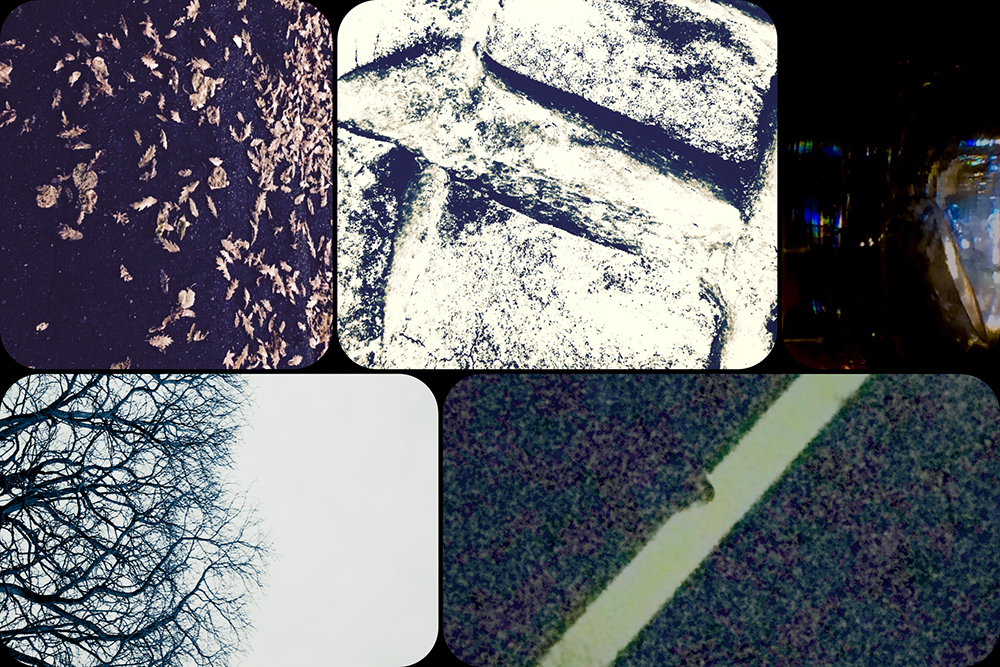“What I couldn’t imagine I would say” - Notes on Pushing Formal Poetry from Patrick Gillespie and Jericho Brown
From “One Hundred Days of Light” by The Mollusc Dimension (An Incomplete Photographic Series in 2017)
It’s not easy to be bold enough to step out of a comfort zone. Curiosity and a thirst for experimentation can help.. In my previous post, I quoted music legend, Tom Waits and what he says about experimentation.
I wanted to challenge myself to writing sonnets in quite a rigid iambic pentameter.
Eight sonnets later, I am looking at ways that poets challenge or disrupt traditional poetic forms, and came across a few interesting points from two poets, one from 2009 (or at least that’s what the blog says) and one from 2020.
“Wikipedia is wrong. A sonnet doesn't have to be in pentameter.”
Patrick Gillespie on his wordpress blog (from 2009), Poem Shape, points to Sonnet 145 by Shakespeare and says there doesn’t have to be a volta.
I found this significant for a few reasons. Even though many people write free verse, there are also many people on the internet repeating that a sonnet is written in pentameter and has a volta. It is interesting that Gillespie advocates writing in metered verse, but he points out that a few canon poets (Shakespeare and Milton) went against the grain. I also see it as encouragement to form one’s own responses on breaking out of forms and daring to share them.
“Rhyme, in the hands of a master, isn’t just about being pretty, formal or graceful. It subliminally directs the reader’s ear and mind, reinforcing thought and thematic material.” (Gillespie)
I quite like the challenge of form at the moment..
“The free verse poet who abjures rhyme of any sort is missing out.” (Gillespie)
Writing some eleven (?) years later, Jericho Brown discusses formal poetry beginning with an equation with prison. It is not entirely fanciful to compare words to incarceration. After all, words are like buildings/ architecture in that - words are used to make the laws, agreements and policies that control people.
“I was wondering if my rigid used of the form meant to mirror its end-word, “prison,” was worth what I conceived as an emotional register or if it could have done some kind of harm by reifying the abhorrent and racist fact of prisons in our culture. Be careful.”
Jericho Brown writing in the Poetry Foundation Blog, Harriet. He won the Pulitzer Prize for his collection, The Tradition which has just arrived in the post and is sitting on my desk next to me..
What Brown says about poems is similar to an angle on dreams. He says that poetry can take us on a journey of possibilities and show us what’s on our minds. The challenge of formal writing takes us deeper into our minds and explores more possibilities than the ones we might freely or more easily choose.
“I should remind everyone who knows me that I do not believe that poems are made of our beliefs. Instead, I believe poems lead us to and tell us what we really believe. I think poems—working with language and seeing where it may lead us, seeing what kinds of choices we make when we have to find a rhyme or a syllable—tell us things about our individual and collective subconscious minds. I write in forms because formal work helps to push me toward saying what I couldn’t imagine I would say in poems.” (Brown)
Interestingly today, I had a music student who asked me if he had to send me an audio recording challenge, because even though he could do it, he found it a bit hard and didn’t think it would be that good. I said that we build stamina and resilience by stepping out of comfort zones. He didn’t agree with me, so I’ll see if I get the audio. I think it’s relevant because I’ve been experimenting with poetry in order to learn more about it, to learn how to communicate in another way with people, and also discover how I feel about it.
As explained, taking brave steps doesn’t necessarily make it easier to try something new, but it makes the idea of being wrong feel less terrible, and more as an exciting and useful step in acquiring skills, knowledge and experience.
I also wanted to read my poems out, but haven’t yet been feeling too bold about that.. So in keeping with pushing oneself out of a comfort zone, I’ll work on that.. and get back to you when I’ve recorded some of my poems then!
- creativity
- mental health
- art
- writing
- storytelling
- LGBTIQ
- performance
- trans
- music
- comics
- DIY culture
- video
- songwriting
- decoloniseeducation
- composing
- queerculture
- intersectional feminism
- photography
- poetry
- racism
- culture
- film
- neurodivergent artist
- teaching
- ESEA
- books
- asian
- britishcolonialism
- learning
- trauma
- family
- comedy
- employment
- animation
- interview
- physical health
- transcript
- grief
- higher education
- motivation
- freelancing
- language
- politics
- science
- tv

